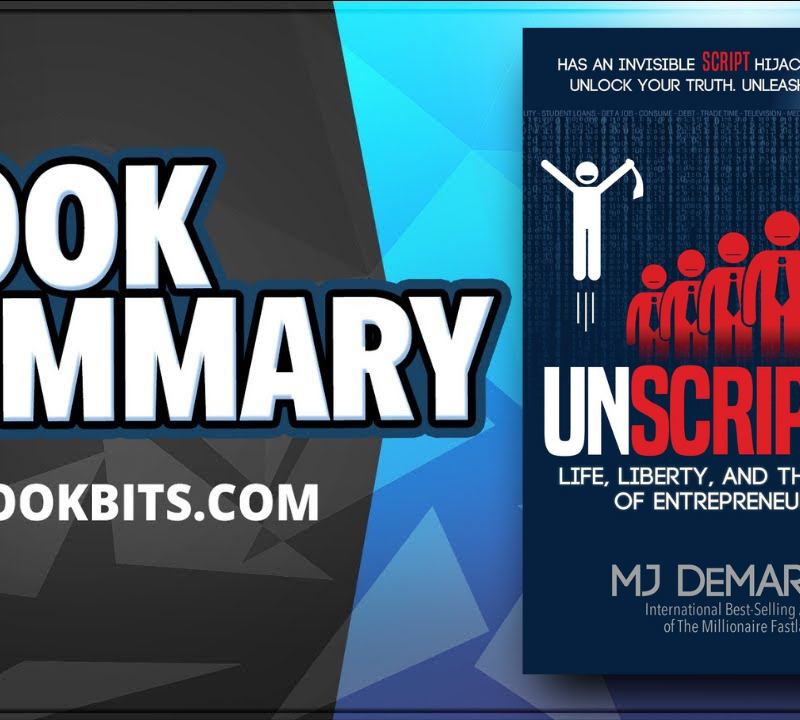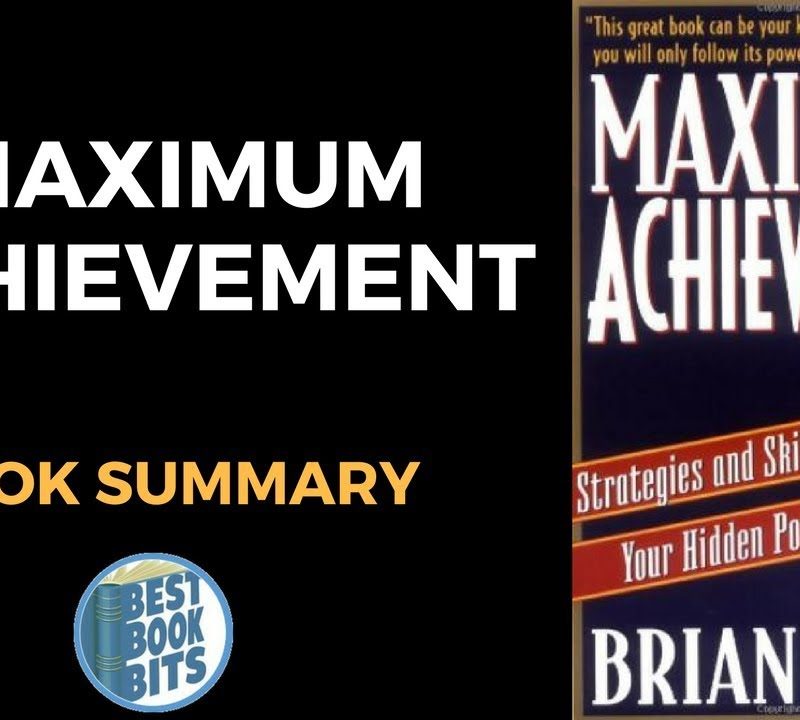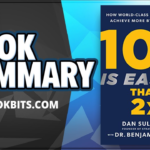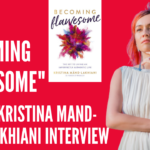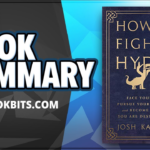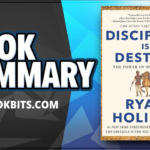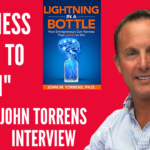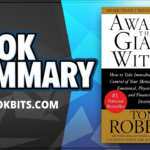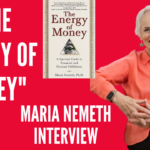★DOWNLOAD THIS FREE PDF SUMMARY HERE
? MY FREE BOOK TO LIVING YOUR DREAM LIFE”
? SPONSOR BESTBOOKBITS BY USING PATREON
? SUPPORT BESTBOOKBITS BY CLICKING THE LINKS BELOW
- 150 PDF Summaries
- Coaching Program
- Subscribe to My Channel
- Website
- Spotify
- Book Club
- Mailing List
The Book in Three Sentences
- Ego is an unhealthy belief in our own importance.
- Ego is there undermining us on the very journey we’ve put everything into pursuing.
- Ego can be managed and directed.
The Five Big Ideas
- At any given time in life, we’re aspiring to something, we have achieved success, or we have failed.
- We must cultivate humility, diligence, and self-awareness if we are to remove ego.
- Maintain your own scorecard.
- Don’t fake it ’til you make it—make it.
- Always stay a student.
Ego Is the Enemy Book Summary
- “The orator Demosthenes once said that virtue begins with understanding and is fulfilled by courage.”
- “Wherever you are, whatever you’re doing, your worst enemy already lives inside you: your ego.”
- “The ego we see most commonly goes by a more casual definition: an unhealthy belief in our own importance. Arrogance. Self-centered ambition.”
- “With every ambition and goal we have—big or small—ego is there undermining us on the very journey we’ve put everything into pursuing.”
- “Just one thing keeps ego around—comfort.”
- “At any given time in life, people find themselves at one of three stages. We’re aspiring to something—trying to make a dent in the universe. We have achieved success—perhaps a little, perhaps a lot. Or we have failed—recently or continually.”
- “Ego is the enemy every step along this way.”
- “Your ego is not some power you’re forced to satiate at every turn. It can be managed. It can be directed.”
- “When we remove ego, we’re left with what is real.”
- “You must practice seeing yourself with a little distance, cultivating the ability to get out of your own head.”
- “What is rare is not raw talent, skill, or even confidence, but humility, diligence, and self-awareness.”
- “For your work to have truth in it, it must come from truth. If you want to be more than a flash in the pan, you must be prepared to focus on the long term.”
- “We will learn that though we think big, we must act and live small in order to accomplish what we seek. Because we will be action and education focused, and forgo validation and status, our ambition will not be grandiose but iterative—one foot in front of the other, learning and growing and putting in the time.”
- “So what is scarce and rare? Silence. The ability to deliberately keep yourself out of the conversation and subsist without its validation. Silence is the respite of the confident and the strong.”
- “Talk depletes us. Talking and doing fight for the same resources. Research shows that while goal visualization is important, after a certain point our mind begins to confuse it with actual progress. The same goes for verbalization.”
- “The only relationship between work and chatter is that one kills the other.”
- “If your purpose is something larger than you—to accomplish something, to prove something to yourself—then suddenly everything becomes both easier and more difficult. Easier in the sense that you know now what it is you need to do and what is important to you. The other “choices” wash away, as they aren’t really choices at all. They’re distractions. It’s about the doing, not the recognition. Easier in the sense that you don’t need to compromise. Harder because each opportunity—no matter how gratifying or rewarding—must be evaluated along strict guidelines: Does this help me do what I have set out to do? Does this allow me to do what I need to do? Am I being selfish or selfless?”
- “In this course, it is not “Who do I want to be in life?” but “What is it that I want to accomplish in life?” Setting aside selfish interest, it asks: What calling does it serve? What principles govern my choices? Do I want to be like everyone else or do I want to do something different?”
- “Although it’s never too late, the earlier you ask yourself these questions the better.”
- “The mixed martial arts pioneer and multi-title champion Frank Shamrock has a system he trains fighters in that he calls plus, minus, and equal. Each fighter, to become great, he said, needs to have someone better that they can learn from, someone lesser who they can teach, and someone equal that they can challenge themselves against.”
- “The purpose of Shamrock’s formula is simple: to get real and continuous feedback about what they know and what they don’t know from every angle. It purges out the ego that puffs us up, the fear that makes us doubt ourselves, and any laziness that might make us want to coast.”
- “As Shamrock observed, ‘False ideas about yourself destroy you. For me, I always stay a student. That’s what martial arts are about, and you have to use that humility as a tool. You put yourself beneath someone you trust.’”
- “This begins by accepting that others know more than you and that you can benefit from their knowledge, and then seeking them out and knocking down the illusions you have about yourself.”
- “A true student is like a sponge. Absorbing what goes on around him, filtering it, latching on to what he can hold. A student is self-critical and self-motivated, always trying to improve his understanding so that he can move on to the next topic, the next challenge. A real student is also his own teacher and his own critic. There is no room for ego there.”
- “Your passion may be the very thing holding you back from power or influence or accomplishment. Because just as often, we fail with—no, because of—passion.”
- “I’m talking about passion of a different sort—unbridled enthusiasm, our willingness to pounce on what’s in front of us with the full measure of our zeal, the ‘bundle of energy’ that our teachers and gurus have assured us is our most important asset.”
- “It is that burning, unquenchable desire to start or to achieve some vague, ambitious, and distant goal. This seemingly innocuous motivation is so far from the right track it hurts.”
- “Passion typically masks a weakness. Its breathlessness and impetuousness and franticness are poor substitutes for discipline, for mastery, for strength and purpose and perseverance. You need to be able to spot this in others and in yourself, because while the origins of passion may be earnest and good, its effects are comical and then monstrous.”
- “What humans require in our ascent is purpose and realism. Purpose, you could say, is like passion with boundaries. Realism is detachment and perspective.”
- “Passion is form over function. Purpose is function, function, function.”
- “The critical work that you want to do will require your deliberation and consideration. Not passion. Not naïveté.”
- “It’d be far better if you were intimidated by what lies ahead—humbled by its magnitude and determined to see it through regardless. Leave passion for the amateurs. Make it about what you feel you must do and say, not what you care about and wish to be.”
- “When you want to do something—something big and important and meaningful—you will be subjected to treatment ranging from indifference to outright sabotage. Count on it.”
- “Pride blunts the very instrument we need to own in order to succeed: our mind.”
- “The question to ask, when you feel pride, then, is this: What am I missing right now that a more humble person might see? What am I avoiding, or running from, with my bluster, franticness, and embellishments? It is far better to ask and answer these questions now, with the stakes still low, than it will be later.”
- “It’s worth saying: just because you are quiet doesn’t mean that you are without pride. Privately thinking you’re better than others is still pride. It’s still dangerous.”
- “Make it so you don’t have to fake it—that’s they key.”
- “Every time you sit down to work, remind yourself: I am delaying gratification by doing this. I am passing the marshmallow test. I am earning what my ambition burns for. I am making an investment in myself instead of in my ego. Give yourself a little credit for this choice, but not so much, because you’ve got to get back to the task at hand: practicing, working, improving.”
- “It is not enough only to be a student at the beginning. It is a position that one has to assume for life. Learn from everyone and everything. From the people you beat, and the people who beat you, from the people you dislike, even from your supposed enemies. At every step and every juncture in life, there is the opportunity to learn—and even if the lesson is purely remedial, we must not let ego block us from hearing it again.”
- “Pick up a book on a topic you know next to nothing about. Put yourself in rooms where you’re the least knowledgeable person. That uncomfortable feeling, that defensiveness that you feel when your most deeply held assumptions are challenged—what about subjecting yourself to it deliberately? Change your mind. Change your surroundings.”
- “We want so desperately to believe that those who have great empires set out to build one. Why? So we can indulge in the pleasurable planning of ours. So we can take full credit for the good that happens and the riches and respect that come our way. Narrative is when you look back at an improbable or unlikely path to your success and say: I knew it all along. Instead of: I hoped. I worked. I got some good breaks. Or even: I thought this could happen. Of course you didn’t really know all along—or if you did, it was more faith than knowledge. But who wants to remember all the times you doubted yourself?”
- “Writing our own narrative leads to arrogance. It turns our life into a story—and turns us into caricatures—while we still have to live it.”
- “These narratives don’t change the past, but they do have the power to negatively impact our future.”
- “When we are aspiring we must resist the impulse to reverse engineer success from other people’s stories. When we achieve our own, we must resist the desire to pretend that everything unfolded exactly as we’d planned. There was no grand narrative. You should remember—you were there when it happened.”
- “Instead of pretending that we are living some great story, we must remain focused on the execution—and on executing with excellence. We must shun the false crown and continue working on what got us here.”
- “It’s not about beating the other guy. It’s not about having more than the others. It’s about being what you are, and being as good as possible at it, without succumbing to all the things that draw you away from it. It’s about going where you set out to go. About accomplishing the most that you’re capable of in what you choose. That’s it. No more and no less.”
- “As you become successful in your own field, your responsibilities may begin to change. Days become less and less about doing and more and more about making decisions. Such is the nature of leadership. This transition requires reevaluating and updating your identity. It requires a certain humility to put aside some of the more enjoyable or satisfying parts of your previous job. It means accepting that others might be more qualified or specialized in areas in which you considered yourself competent—or at least their time is better spent on them than yours.”
- “Ego needs honors in order to be validated. Confidence, on the other hand, is able to wait and focus on the task at hand regardless of external recognition.”
- “We have to fight to stay sober, despite the many different forces swirling around our ego.”
- “According to [Robert] Greene, there are two types of time in our lives: dead time, when people are passive and waiting, and alive time, when people are learning and acting and utilizing every second. Every moment of failure, every moment or situation that we did not deliberately choose or control, presents this choice: Alive time. Dead time.”
- “When success begins to slip from your fingers—for whatever reason—the response isn’t to grip and claw so hard that you shatter it to pieces. It’s to understand that you must work yourself back to the aspirational phase. You must get back to first principles and best practices.”
- “The only real failure is abandoning your principles. Killing what you love because you can’t bear to part from it is selfish and stupid. If your reputation can’t absorb a few blows, it wasn’t worth anything in the first place.”
★DOWNLOAD THIS FREE PDF SUMMARY HERE
? MY FREE BOOK TO LIVING YOUR DREAM LIFE”
? SPONSOR BESTBOOKBITS BY USING PATREON
? SUPPORT BESTBOOKBITS BY CLICKING THE LINKS BELOW

